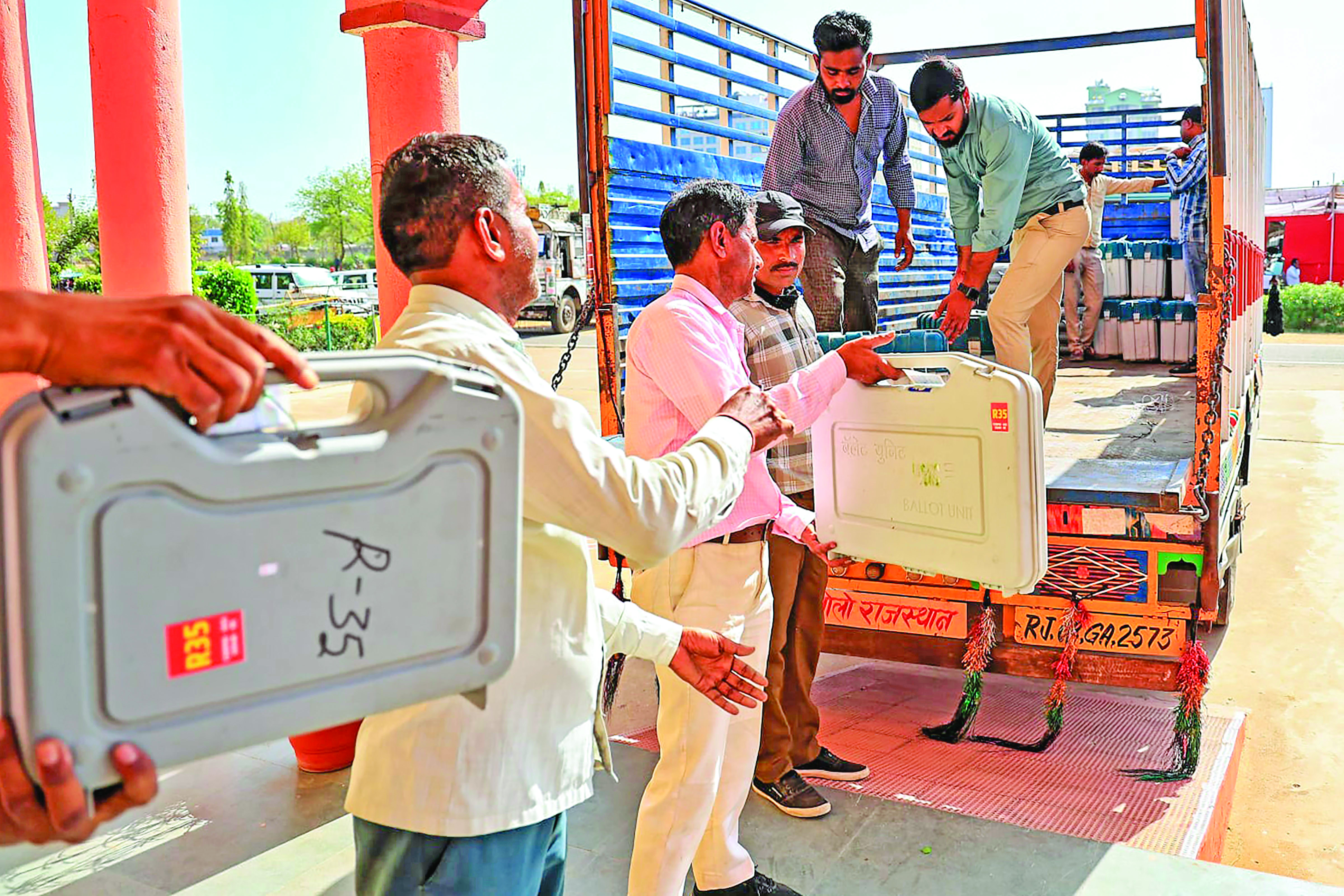Can’t control elections or pass directions on basis of suspicion, SC tells EVM critics

New Delhi: The Supreme Court on Wednesday reserved its judgement on several petitions questioning the reliability of Electronic Voting Machines (EVMs), stating it lacks the authority to “control the elections” or issue directives based on mere doubts about EVMs. The petitions suggest that EVMs could be manipulated to alter election outcomes.
The bench, comprising Justices Sanjiv Khanna and Dipankar Datta, highlighted that it cannot alter the mindset of those sceptical about EVMs who favour a return to paper ballots.
The bench reserved its verdict on a batch of pleas seeking complete cross-verification of votes cast using EVMs with Voter Verifiable Paper Audit Trail (VVPAT), after taking note of the answers to queries it had posed to the Election Commission.
It sought answers from an official of the poll panel to five questions related to the functioning of EVMs including whether the microcontrollers fitted in them are reprogrammable:
Is the microcontroller housed in the control unit or the VVPAT?
Is the microcontroller programmed only once?
How many symbol loading units are in use?
The EC previously stated that EVMs are retained for 30 days, citing a 30-day limitation period for filing an election petition. However, the Representation of the People Act specifies a 45-day period. Could you clarify this inconsistency?
Are the EVMs, VVPATs, and control units stored together or separately?
Senior Deputy Election Commissioner Nitesh Kumar Vyas, while responding to the question about microcontrollers, said they are one-time programmable at the time of manufacture and installed in all the three units of EVMs–the balloting unit, VVPAT and the control unit.
They cannot be reprogrammed thereafter, he asserted.
Advocate Prashant Bhushan, representing the NGO ‘Association for Democratic Reforms’, contested the EC’s claim, referencing a private report suggesting the possibility of reprogramming EVM memory during symbol loading.
Justice Khanna told Bhushan that the court has to rely on the data and information provided by the EC, a constitutional body, which says the programme in the memory of an EVM can be written only once.
“If you are prejudiced or predisposed about something, then we cannot help it. We cannot change your thought process,” the bench told Bhushan.
Justice Datta questioned the feasibility of issuing mandates based on suspicions, especially when no manipulation incidents have been reported.
The court recalled previous directives on VVPAT usage and increasing the number of VVPAT verifications per assembly segment. It expressed its limitation to only strengthen the EVM system if necessary, rather than reverting to paper ballots.
The bench clarified that the matter was relisted for further EC clarification on EVM FAQs.
During the hearing, Vyas told the court that microcontrollers installed in balloting unit, control unit and VVPAT cannot be accessed physically in any manner as there is a tamper detection feature which makes an EVM inoperative the moment anyone tries to open the machine.
Vyas said EVMs are stored for 45 days after the polling in conformity with the limitation period for filing an election petition under the Representation of the People Act.
“On the 46th day, the returning officer writes to the registrar general of the high court on whether any election petition has been filed. If the registrar general informs about filing of election petition, then EVMs of that constituency are sealed and preserved for future purpose,” he said.
When senior advocate Santosh Paul, appearing for one of the petitioners, said that source code of EVMs should also be disclosed for transparency, the court rejected his contention, saying “No, the source code cannot be disclosed as there is a chance of it to be misused.”
The final verdict was reserved after a two-day hearing, with additional clarifications sought from the EC.
The NGO has also challenged the EC’s decision to replace transparent VVPAT glass with an opaque one, limiting slip visibility, and advocates for reinstating paper ballots.
The ongoing seven-phase Lok Sabha elections commenced on April 19, with results expected on June 4.




